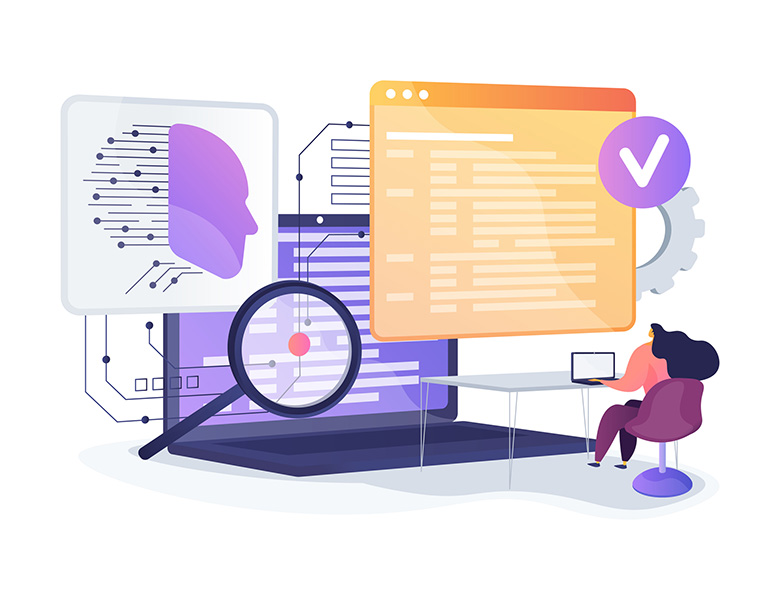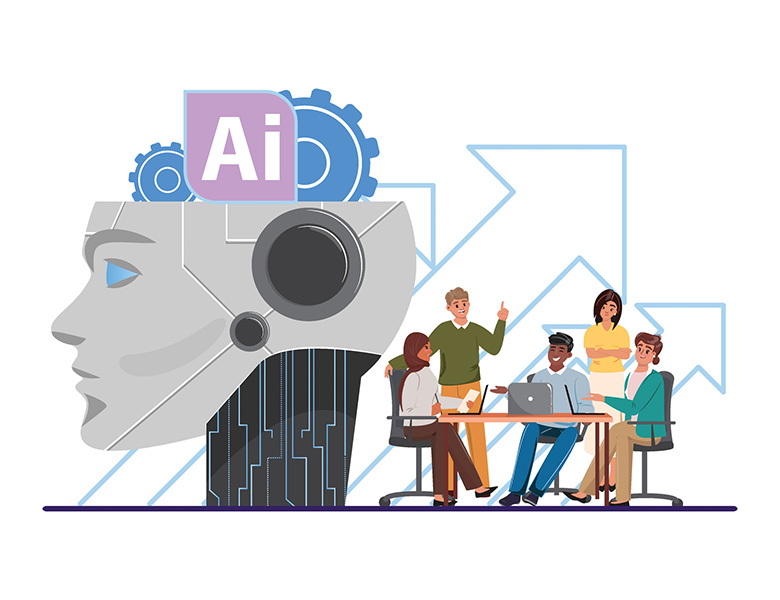There is no doubt that Python is the world's most popular and fastest-growing language. The TIOBE Index ranks Python first above traditional and long-standing languages like Java, C, and C++. Python is used by software engineers, mathematicians, data analysts, scientists, accountants, network engineers, and even children making their first steps into programming. In this article, you'll find out what makes Python so popular and if the hype is justified.
What Is Python?
Python is an interpreted, object-oriented, high-level programming language. Interpreted means that you can write Python code in a form that humans can understand, and without compiling, an interpreter will translate this code into machine instructions. Python also has all the advantages of an object-oriented language and supports powerful programming concepts like abstraction encapsulation inheritance, and polymorphism. Lastly, the fact that Python is high-level means that you can focus more on the programming logic rather than the underlying hardware components like memory addressing and machine registers.
What Makes Python So Popular?
Let's jump right in and see some of Python's strong points.
Learning Python is Easy
Python's ease of use is one of its most significant advantages over other programming languages. It's by far one of the easiest programming languages to learn, and it's capable of doing very powerful things. This is why the language has been gaining popularity recently. It makes developers' lives easier, and it's one of the reasons that a lot of people get into programming. Thanks to languages like Python, beginners don't have to deal with complicated lower-end code, memory references, and other complicated technical concepts, but they can go straight into building web applications, user interfaces, and various other projects that would be difficult to create with different options.
Python Has a Large Community
Python has a massive amount of freely available resources on the internet, like documentation, tutorials, and guides you can rely on in times of need. This practically means that when you're developing your application, and you require a specific piece of code or any kind of help, you'll probably be able to find it online, and it's going to be trustworthy and high quality. When you're learning a new programming language, or you don't have much experience, having many resources and a large and supportive community to help you is essential. Of course, with Python, not only beginners but also developers of all levels can benefit from an active and effective community.
Python Has Many Libraries and Frameworks
One of Python's biggest advantages over other languages is the number of libraries, modules, and packages available. With Python, it's easy to install and import modules and packages, which can be difficult with other languages. Even if your project is complex and unique, the chances are that there's already a part of functionality built that you can use. This means that you don't have to know all the intricacies when you're creating any kind of project. Python allows you to import a package or use a framework that will save you time and effort during the development process. Most Python resources have excellent documentation to help you quickly figure things out.
Python is Efficient, Reliable and Reduces Development Time
Another advantage that makes Python attractive is that it reduces development time significantly. Although you can argue that Python requires more time to execute, the time-to-market ratio for the same project developed with other languages is much higher. First, Python's syntax is straightforward and logical, which makes it easier not only to learn but also allows you to build robust software with efficiency and less effort. Second, there's a lot of abstraction, and many complex functionalities that make the language powerful are hidden under the hood. This means that creating the same program requires less code and, therefore, less time. Additionally, with Python, you have the luxury of testing your ideas faster and cheaper, making it an excellent option for software prototyping.
Python Is Widely Used in Academic Institutions
Python is the lingua franca for academia. Schools, colleges, universities, etc., are using Python to introduce their students to the world of programming. This has not only contributed to the further spread of the language but also ensures that it will remain a popular choice for the foreseeable future and is worth investing in.
Python Is Portable and Extensible
Python is portable. This means that if you have code written for one particular operating system, you can easily run it on another OS without changing or adjusting your code. Also, Python is extensible, which means that you can take functionality pieces from other programming languages and incorporate them into your Python code seamlessly.
Where Can You Use Python?
There are many real-world scenarios in which Python is useful, and it can be used by various specialists, not just software developers. Python is considered a general-purpose programming language, which means that it has applications in various fields and will help you tackle all kinds of human and business challenges.
Web Development
Python is widely used in web development and is one of the top choices for back-end programming. There are many Python-based web frameworks like Django or Flask, both of which are very popular and have features you will find helpful when developing back-end systems or working with databases. Python web frameworks are highly scalable, flexible, and secure and can make your web development process much more manageable.
Data Science/Data Visualization
Python can be used in data science for data analysis and data visualization. Researchers and data analysts use Python to extract trends and patterns from large data sets, predict future outcomes and make decisions based on those predictions. Python offers several libraries like Tensorflow, Pandas, NumPy, etc., that'll help you manipulate data and perform complex analysis tasks. Additionally, there are numerous data visualization options like Matplotlib or Plotnine that can cover all of your needs.
Artificial Intelligence/Machine Learning
Python is very popular for artificial intelligence and machine learning. Constant technological advancements have allowed these technologies to grow exponentially in recent years, and Python offers an easy solution to develop complex algorithms. There's a wide range of real-world applications like fraud prevention, creating smart recommendation engines, autonomous vehicles, speech and facial recognition, and many many more.
Game Development
Gaming is one of the fastest-growing industries, and Python has become one of the primary programming languages for game development. It offers many valuable libraries suitable for creating interactive games faster and less effort. Two of the most popular are PyGame and PySoy, with the latter being a 3D cloud game engine that allows you to build and deploy games on the cloud. Many game engines also use Python as their scripting language.
Web Scraping
Web scraping allows you to automatically collect data from websites, analyze it, and use it to support business operations and decisions. With Python, you can create small programs that will help you crawl specific websites and extract the data you need fast and efficiently. Web scraping is useful in a number of cases, like extracting the pricing data of your competitors or monitoring your company's online reputation for potentially harmful content.
Software Development
Python simplifies otherwise complicated software development processes making it a great option for simple and advanced projects. You can use Python packages to manage build control, continuous testing, bug tracking, project management, and really all phases of the software life cycle. Youtube, Spotify, and Instagram are just a few examples of software applications built with Python.
Python's capabilities are definitely not limited to the above areas. Python's scalability, extensibility, and readability make it a versatile programming language for building business or mobile applications. It can also be used for image processing, cybersecurity, the internet of things (IoT), and many more applications in a variety of fields.
Which Companies Use Python
After finding out more about Python and what advantages it brings to the table, it shouldn't surprise you to learn that many companies with products you use every day rely on Python to achieve their amazing results. For example, Google, one of the biggest tech companies in the world, uses Python for its artificial intelligence and machine learning projects like Google assistant. Other companies that leverage Python's capabilities include Netflix, Facebook, Spotify, IBM, and the list goes on and on. When technology giants use Python for their extremely complex needs, you can be confident that it can also meet your project requirements.
Conclusion
Python was created more than 30 years ago and it has managed to emerge as the most popular programming language of the modern era. Python’s simplicity, versatility, reliability, and powerful capabilities make it the most suitable choice for areas like artificial intelligence, data analysis, web development, and many more. Professionals from different fields are using Python to develop useful applications for businesses and users.
What about your projects?
Reach out if you have any other thoughts on what makes Python so popular and find out how Solwey and our custom-tailored software solutions can cover your needs.





